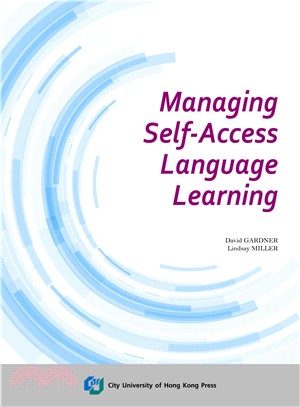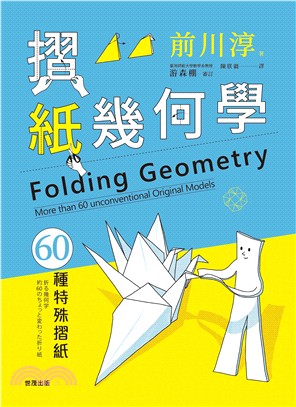商品簡介
Self-Access Language Learning (SALL) has played a prominent part in language education in universities. Its role is to foster autonomous learning among students. With the wide-spread implementation of SALL and its increasing impacts on students, it is important to understand how SALL is managed in order to meet the learning needs of the users in the most resource-effective way. This book provides readers with an understanding of SALL management by setting the discussion against a wider backdrop and also examining details of current good practice.
The authors examine issues of leadership and management in education before turning to look at the roles of a SALL manager, and suggest how these roles are changing and what the future may hold for managing SALL. Case studies are used to illustrate how SALL is managed in different universities as a way of contextualising the issues discussed in the book.
The book is of relevance to institutional and departmental managers, classroom-based language teachers, teachers more directly involved in providing SALL opportunities and, of course, SALL managers.
作者簡介
David GARDNER is the associate director of the Centre for Applied English Studies at the University of Hong Kong. He has created and taught a range of EAP and ESP courses and managed a self-access centre. His areas of research interest are: self-access language learning, computer-assisted learning and plagiarism. He co-authored Establishing Self-Access: From Theory To Practice Practice(1999), with L. Miller; and edited Fostering Autonomy in Language Learning(2011).
Lindsay MILLER is an associate professor in the Department of English at City University of Homg Kong. He has been responsible for designing, developing and teaching a wide variety of courses in the areas of ESP, specialist courses on listening and speaking proficiency skills and conceptual courses on learner autonomy and critical pedagogy. His main areas of research focus on self-access language learning, and academic listening. He has co-authored Establishing Self-Access: From Theory To Practice(1999), with D. Gardner; and Second Language Listening: Theory and Practice(2005), with J. Flowerdew.
目次
1. Introduction to the Management of Self-Access Language Learning
2. Management and Leadership
3. The Role of the Self-Access Manager
4. Researching the Management of Self-Access Learning
5. A Practical Perspective: The Case Studies
6. Looking Forward
書摘/試閱
From the authors who gave us the seminal book on establishing self-access language learning, we now have a publication exploring issues related to the management of self-access language learning (SALL). This book represents a groundbreaking step in fulfilling a vital need because as the authors, David Gardner and Lindsay Miller, state in the Introduction, not enough is known about how SALL is managed. In their exploration of this topic, Gardner and Miller interweave theory, research and practice; thereby making this book an important one for not only SALL managers and workers to read, but also teachers, researchers and institutional administrators interested in this area.
From a theoretical perspective, Gardner and Miller broaden our understanding of SALL and its management in at least three ways. First, they move SALL beyond the bounded space of the self-access centre. They present an expanded vision of SALL, which encompasses its integration into classroom-based courses and recognises the role it plays in connecting learners to resources and other learners around the world. Secondly, the authors make a crucial distinction between management and leadership. They conclude that ideally managers should also be leaders who have a vision that can serve to guide their daily practice and orient them towards future needs, challenges and opportunities. Thirdly, as the first two points suggest, Gardner and Miller establish SALL as change and future oriented. Their research suggests that managing SALL is tantamount to managing change.
Clearly, research is required to support SALL managers as they endeavour to channel constant change and challenges into future opportunities. In response to a woeful lack of research in this area, Gardner and Miller do three things. First, they outline an innovative methodology for researching SALL management. A key feature of this case study-based methodology is that it enables the voices of practitioners to be heard firsthand. Secondly, the authors, having employed these methods in a study of their own, provide readers with a thought-provoking analysis of the results. Thirdly, the authors include as appendices the six case studies from their inquiry in which SALL managers examine and reflect on their practice. As a result, readers are able to glean insights from the managers’ knowledge and experience, which have the potential to inform practice.
Although Gardner and Miller are quick to point out that the book is not a manual for SALL management, it does provide insights to guide practice. It achieves this in a number of ways; most notably, through the authors’ review of the literature on management and leadership, a discussion of the role of the self-access manager, an analysis of data from the authors’ study, and the inclusion of the six case studies. As those of us who have managed or who are currently managing SALL will tell you, most managers learn by doing, from visits to self-access centres and from conversations with more experienced colleagues. Given the current context, the practical support this book provides is most welcome.
Through their exploration of what SALL management is and the role of SALL managers, Gardner and Miller make a valuable contribution to the field of language education by both expanding our knowledge and awareness of this under-investigated area and by attributing to SALL managers the professional status they merit. This book is a “must read” for administrators and educators interested in establishing SALL at their institutions as well those who are already engaged in providing SALL opportunities to learners. I am convinced that anyone who reads this book will not only gain a greater understanding of SALL management but a newfound respect for SALL managers and the work they do.
Garold MURRAY
Okayama University
April, 2014
PREFACE
From the authors who gave us the seminal book on establishing self-access language learning, we now have a publication exploring issues related to the management of self-access language learning (SALL). This book represents a groundbreaking step in fulfilling a vital need because as the authors, David Gardner and Lindsay Miller, state in the Introduction, not enough is known about how SALL is managed. In their exploration of this topic, Gardner and Miller interweave theory, research and practice; thereby making this book an important one for not only SALL managers and workers to read, but also teachers, researchers and institutional administrators interested in this area.
From a theoretical perspective, Gardner and Miller broaden our understanding of SALL and its management in at least three ways. First, they move SALL beyond the bounded space of the self-access centre. They present an expanded vision of SALL, which encompasses its integration into classroom-based courses and recognises the role it plays in connecting learners to resources and other learners around the world. Secondly, the authors make a crucial distinction between management and leadership. They conclude that ideally managers should also be leaders who have a vision that can serve to guide their daily practice and orient them towards future needs, challenges and opportunities. Thirdly, as the first two points suggest, Gardner and Miller establish SALL as change and future oriented. Their research suggests that managing SALL is tantamount to managing change.
Clearly, research is required to support SALL managers as they endeavour to channel constant change and challenges into future opportunities. In response to a woeful lack of research in this area, Gardner and Miller do three things. First, they outline an innovative methodology for researching SALL management. A key feature of this case study-based methodology is that it enables the voices of practitioners to be heard firsthand. Secondly, the authors, having employed these methods in a study of their own, provide readers with a thought-provoking analysis of the results. Thirdly, the authors include as appendices the six case studies from their inquiry in which SALL managers examine and reflect on their practice. As a result, readers are able to glean insights from the managers’ knowledge and experience, which have the potential to inform practice.
Although Gardner and Miller are quick to point out that the book is not a manual for SALL management, it does provide insights to guide practice. It achieves this in a number of ways; most notably, through the authors’ review of the literature on management and leadership, a discussion of the role of the self-access manager, an analysis of data from the authors’ study, and the inclusion of the six case studies. As those of us who have managed or who are currently managing SALL will tell you, most managers learn by doing, from visits to self-access centres and from conversations with more experienced colleagues. Given the current context, the practical support this book provides is most welcome.
Through their exploration of what SALL management is and the role of SALL managers, Gardner and Miller make a valuable contribution to the field of language education by both expanding our knowledge and awareness of this under-investigated area and by attributing to SALL managers the professional status they merit. This book is a “must read” for administrators and educators interested in establishing SALL at their institutions as well those who are already engaged in providing SALL opportunities to learners. I am convinced that anyone who reads this book will not only gain a greater understanding of SALL management but a newfound respect for SALL managers and the work they do.
Garold MURRAY
Okayama University
April, 2014
主題書展
更多主題書展
更多書展本週66折
您曾經瀏覽過的商品
購物須知
為了保護您的權益,「三民網路書店」提供會員七日商品鑑賞期(收到商品為起始日)。
若要辦理退貨,請在商品鑑賞期內寄回,且商品必須是全新狀態與完整包裝(商品、附件、發票、隨貨贈品等)否則恕不接受退貨。

























